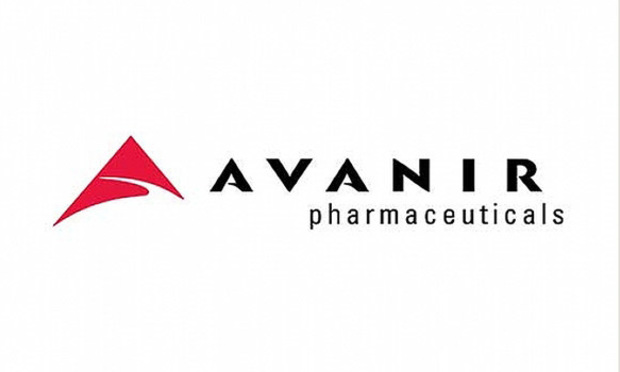Drug Company Agrees to $95M Settlement in Alleged Kickback Scheme
The whistleblower complaint against Avanir Pharmaceuticals—unsealed Monday in the U.S. District Court for the Northern District of Georgia—alleges that company sales representatives aggressively marketed Nuedexta to nursing homes and assisted living facilities for narcotizing patients for behaviors commonly associated with dementia.
September 26, 2019 at 04:10 PM
6 minute read
 (Photo: Google Images)
(Photo: Google Images)
A California drug company has agreed to pay more than $95 million to settle two whistleblower complaints claiming it paid kickbacks to physicians and marketed the drug Nuedexta for off-label uses that resulted in millions of dollars in fraudulent medical claims, the U.S. Justice Department announced Thursday.
The whistleblower complaint against Avanir Pharmaceuticals—unsealed Monday in the U.S. District Court for the Northern District of Georgia—alleges that company sales representatives aggressively marketed Nuedexta to nursing homes and assisted living facilities for use in narcotizing patients for behaviors commonly associated with dementia, even though the drug was only approved for treating a rare neurological condition known as pseudobulbar affect. The condition is characterized by uncontrollable crying or laughter.
U.S. Attorney Byung J. "BJay" Pak also filed a criminal information against Avanir on Thursday, accusing the company of paying a physician kickbacks to induce him to boost prescriptions for Nuedexta and recruit other physicians to do the same. Prosecutors have agreed to deter prosecuting the company in return for Avanir's agreement to pay an additional $7.8 million criminal penalty and forfeit nearly $5 million, Main Justice said.
Avanir secured the deferred prosecution after taking remedial measures that terminating staff, including some senior executives, either through voluntary resignations or firing them.
"When a drug company pays kickbacks to physicians, it can affect their medical decision-making and undermine the proper treatment of their patients," said Pak. "This is particularly troublesome when it affects our vulnerable elderly population."
Avanir is a subsidiary of Otsuka Pharmaceutical Co. in Japan.
The complaint was filed by two former Avanir sales representatives in 2015 on behalf of the government and 29 states and the District of Columbia where the drug was marketed.
A companion false claims complaint filed in the Northern District of Ohio was unsealed Tuesday. U.S. Attorney Justin Herdman of the Northern District of Ohio on Thursday announced an 83-count indictment of two physicians, an Avanir salesman and a regional business manager in an alleged kickback scheme involving Nuedexta prescriptions.
"Doctors should prescribe medicine based on what is best for their patients, not on which drug company is paying for their travel and meals," Herdman said.
Attorney Page Pate of Atlanta's Pate & Johnson, who partnered with Benjamin Fox at Atlanta's Bondurant Mixson & Elmore to represent the Georgia whistleblowers, said federal prosecutors in the Atlanta case focused Nuedexta prescriptions for an unapproved use.
Pate said that Shipman was one of Avenir's regional sales representatives when he first contacted Pate. "He was concerned about how patients in nursing homes were being treated. He saw what he believed to be abusive, predatory practices of this company," Pate said. "He was not a disgruntled employee."
Under the False Claims Act, successful whistleblowers receive a portion of the recovered damages associated with the reported fraud. Pate said he anticipates the Georgia whistleblowers will receive around 18.5% of Avanir's settlement. Avanir also is expected to reimburse the whistleblowers for legal fees.
"Our clients, our firm and our co-counsel at Pate & Johnson are grateful to the government attorneys and investigators who credited, substantiated and pursued the claims raised in their complaint," Fox said.
Avanir said in a news release after the settlement was announced that the company "fully cooperated" with the government throughout its investigation and "engaged in extensive remedial measures."
"The company takes its responsibilities to patients, their families and caregivers, and health care providers very seriously," said Avanir president and CEO Wa'el Hashad.
"Avanir is deeply committed to regulatory and legal compliance, integrity and ethical behavior, and the health and safety of patients," he said.
Federal prosecutors said that as part of the kickback scheme, Avanir engaged doctors to promote Nuedexta at dinners at high-end restaurants with slideshows and an audience provided by Avanir. The company allegedly paid one defendant physician more than $330,000 between 2011 and 2016 in fees. During that time, defendant Deepak Raheja, a Cleveland, Ohio, physician specializing in psychiatry and neurology, wrote more than 10,000 Nuedexta prescriptions—the most in the nation.
The Georgia complaint, filed by whistleblowers Duane Arnold and Mark Shipman, said Avanir trained company sales representatives to "aggressively promote an expanded and amorphous definition" of pseudobulbar affect. The sales force was also trained to promote use of the drug for behaviors not linked to the condition, the complaint said.
Avanir representatives marketed Nuedexta for use in place of other psychoactive drugs that are more closely monitored by the federal government for potential misuse in sedating patients, even though the company's own studies indicated that the true population of patients with PBA was is limited.
According to the complaint, "Avanir has exploited government policies and efforts to reduce the improper use of psychoactive drugs to chemically restrain nursing home residents to generate sales for off-label uses" of Nuedexta. The marketing pitch gave nursing homes cachet to begin prescribing the drug to control patient conduct while reducing the use of other drugs more closely monitored for potential abuse by the government.
"Avanir' s sales representatives were trained to collect lists of patients taking psychoactive drugs and/or exhibiting disruptive behaviors" from the staffs of nursing homes and the institutional pharmacies that served them that were then used by physicians and other prescribers as lists of potential candidates to be prescribed Nuedexta, according to the complaint.
"Avanir has used this strategy to convert a significant number of patients from psychoactive drugs to Nuedexta despite the fact that the vast majority of them do not have or have not been properly diagnosed with PBA," the suit alleged.
To counter objections by some physicians, Avanir also instructed their sales force to provide misleading or false information to nursing homes and assisted living facilities that patients with PBA could exhibit behaviors that included crying without tears, moaning or making inarticulate sounds, all symptoms commonly observed in patients with dementia, DOJ officials said.
Those prescriptions for off-label use of the drug prompted the use of false diagnosis codes and statements submitted to government health care agencies about patients' conditions, including false diagnosis codes, prior authorization forms and letters of medical necessity, the suit contends.
Correction: This story has been updated to correct the name of Page Pate's law firm.
This content has been archived. It is available through our partners, LexisNexis® and Bloomberg Law.
To view this content, please continue to their sites.
Not a Lexis Subscriber?
Subscribe Now
Not a Bloomberg Law Subscriber?
Subscribe Now
NOT FOR REPRINT
© 2025 ALM Global, LLC, All Rights Reserved. Request academic re-use from www.copyright.com. All other uses, submit a request to [email protected]. For more information visit Asset & Logo Licensing.
You Might Like
View All
Carrier Legal Chief Departs for GC Post at Defense Giant Lockheed Martin

A Looming Seismic Shift in the Rules of Evidence: The Far-Reaching Impact of Diaz v. United States
9 minute read
Mike Lynch's Brush With Prison Taught Him Life Is Precious. Then a Yacht Accident Proved Him Right

How Defense Attorneys Can Prepare for the Possibility of a Nuclear Verdict
6 minute readTrending Stories
Who Got The Work
J. Brugh Lower of Gibbons has entered an appearance for industrial equipment supplier Devco Corporation in a pending trademark infringement lawsuit. The suit, accusing the defendant of selling knock-off Graco products, was filed Dec. 18 in New Jersey District Court by Rivkin Radler on behalf of Graco Inc. and Graco Minnesota. The case, assigned to U.S. District Judge Zahid N. Quraishi, is 3:24-cv-11294, Graco Inc. et al v. Devco Corporation.
Who Got The Work
Rebecca Maller-Stein and Kent A. Yalowitz of Arnold & Porter Kaye Scholer have entered their appearances for Hanaco Venture Capital and its executives, Lior Prosor and David Frankel, in a pending securities lawsuit. The action, filed on Dec. 24 in New York Southern District Court by Zell, Aron & Co. on behalf of Goldeneye Advisors, accuses the defendants of negligently and fraudulently managing the plaintiff's $1 million investment. The case, assigned to U.S. District Judge Vernon S. Broderick, is 1:24-cv-09918, Goldeneye Advisors, LLC v. Hanaco Venture Capital, Ltd. et al.
Who Got The Work
Attorneys from A&O Shearman has stepped in as defense counsel for Toronto-Dominion Bank and other defendants in a pending securities class action. The suit, filed Dec. 11 in New York Southern District Court by Bleichmar Fonti & Auld, accuses the defendants of concealing the bank's 'pervasive' deficiencies in regards to its compliance with the Bank Secrecy Act and the quality of its anti-money laundering controls. The case, assigned to U.S. District Judge Arun Subramanian, is 1:24-cv-09445, Gonzalez v. The Toronto-Dominion Bank et al.
Who Got The Work
Crown Castle International, a Pennsylvania company providing shared communications infrastructure, has turned to Luke D. Wolf of Gordon Rees Scully Mansukhani to fend off a pending breach-of-contract lawsuit. The court action, filed Nov. 25 in Michigan Eastern District Court by Hooper Hathaway PC on behalf of The Town Residences LLC, accuses Crown Castle of failing to transfer approximately $30,000 in utility payments from T-Mobile in breach of a roof-top lease and assignment agreement. The case, assigned to U.S. District Judge Susan K. Declercq, is 2:24-cv-13131, The Town Residences LLC v. T-Mobile US, Inc. et al.
Who Got The Work
Wilfred P. Coronato and Daniel M. Schwartz of McCarter & English have stepped in as defense counsel to Electrolux Home Products Inc. in a pending product liability lawsuit. The court action, filed Nov. 26 in New York Eastern District Court by Poulos Lopiccolo PC and Nagel Rice LLP on behalf of David Stern, alleges that the defendant's refrigerators’ drawers and shelving repeatedly break and fall apart within months after purchase. The case, assigned to U.S. District Judge Joan M. Azrack, is 2:24-cv-08204, Stern v. Electrolux Home Products, Inc.
Featured Firms
Law Offices of Gary Martin Hays & Associates, P.C.
(470) 294-1674
Law Offices of Mark E. Salomone
(857) 444-6468
Smith & Hassler
(713) 739-1250






